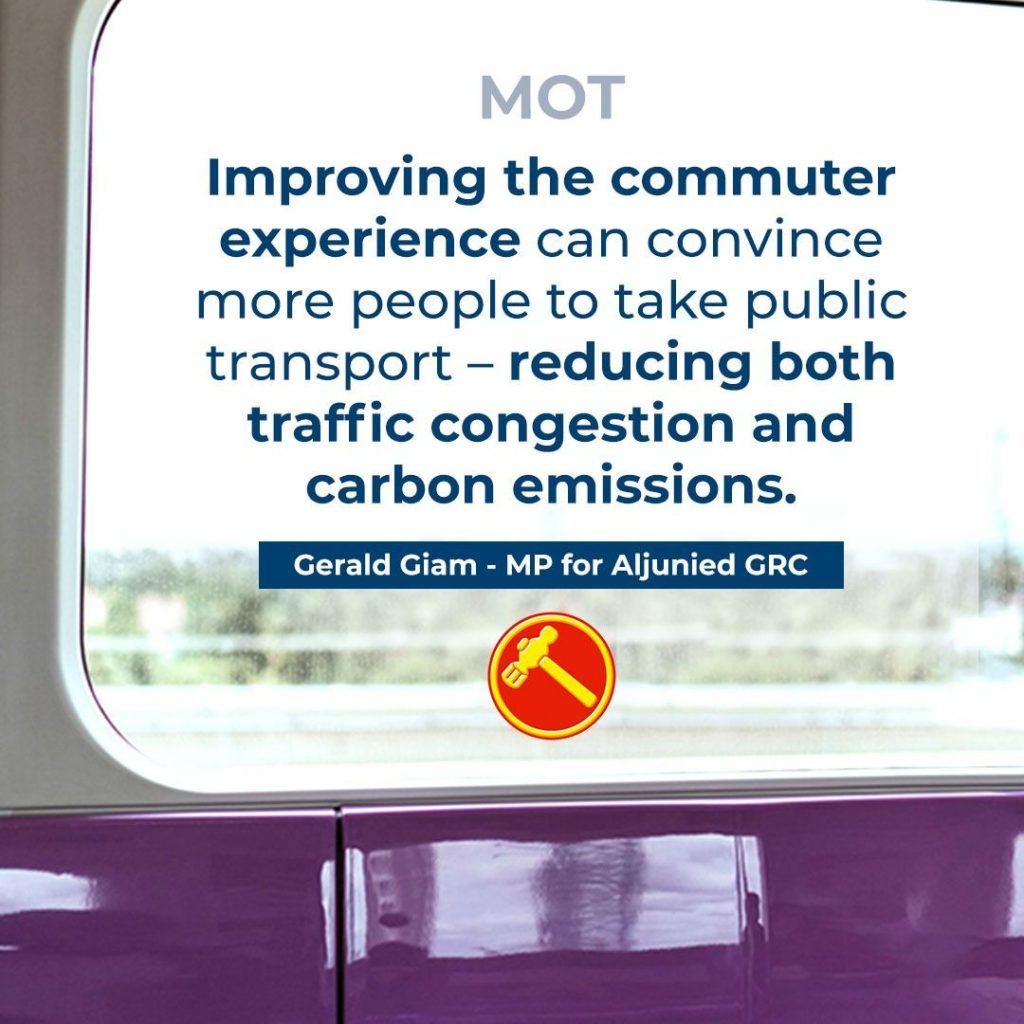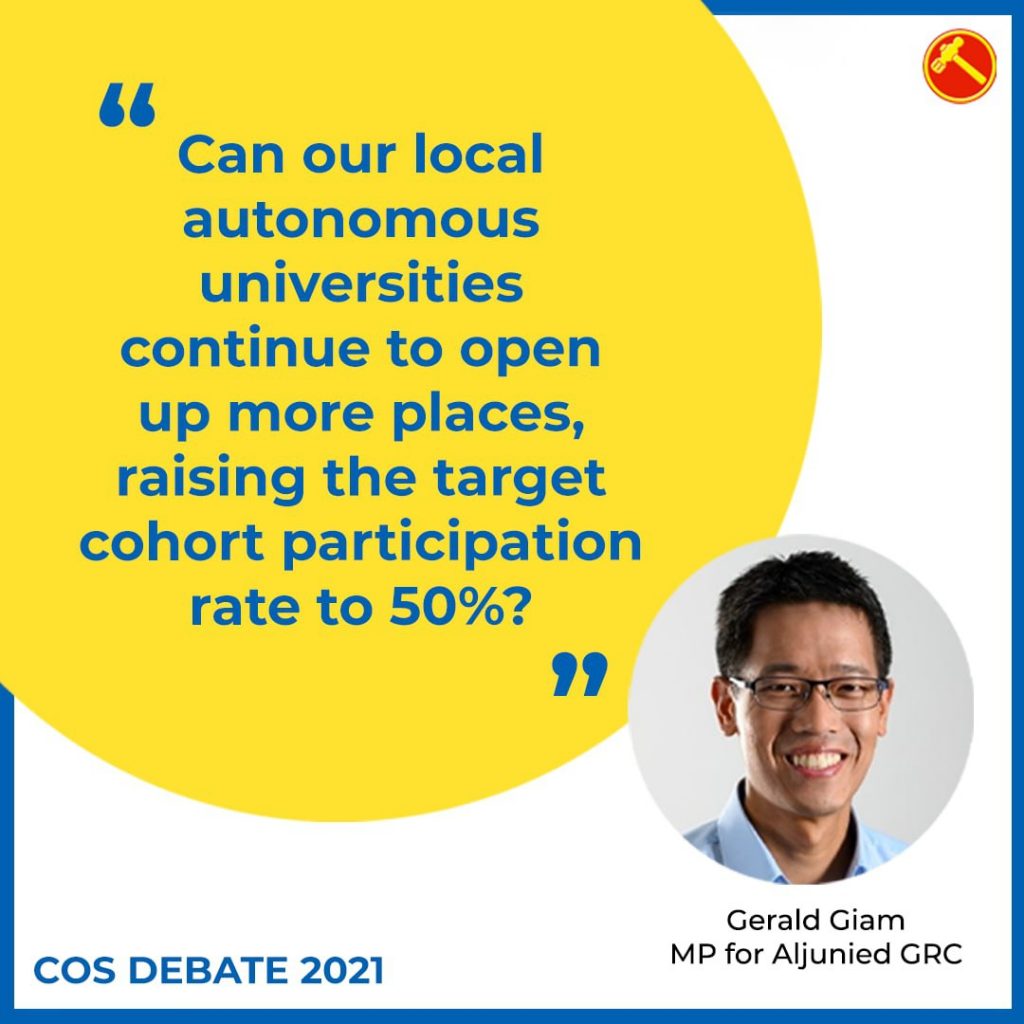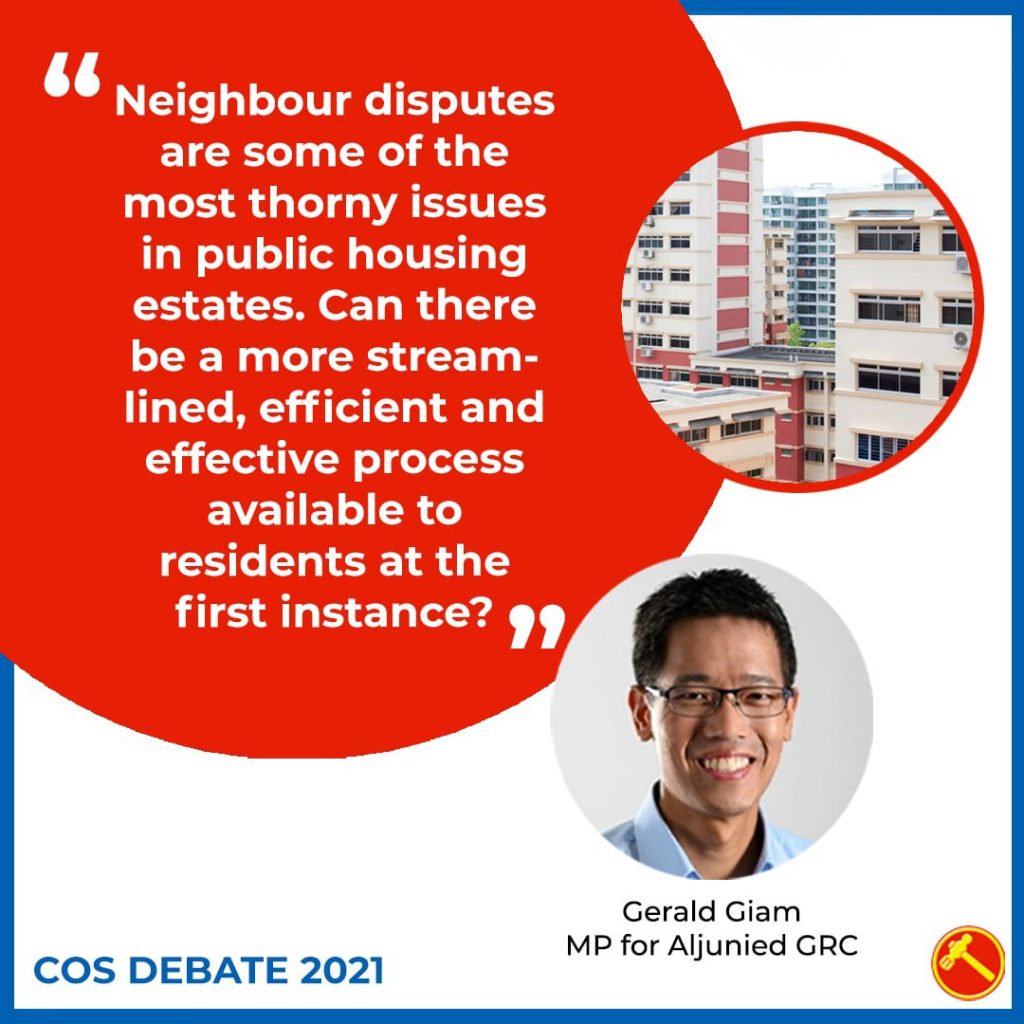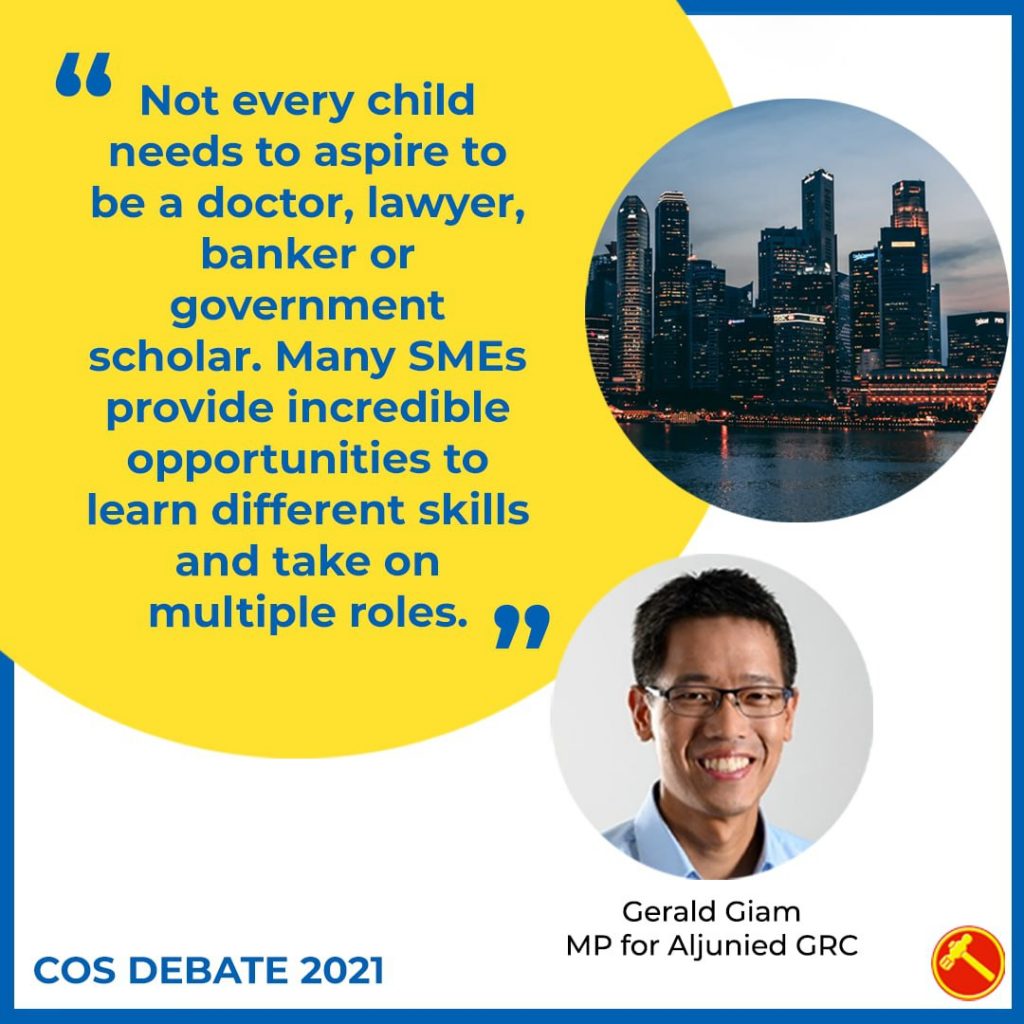Committee of Supply debate, 5 March 2021.

Many seniors suffer from chronic conditions which require extended care that can be very expensive. Most outpatient treatment is not covered by Medishield Life, and access to Medifund is only available to the very low income. The use of Medisave is subject to annual withdrawal caps. This can have the undesirable effect of discouraging seniors from seeking early treatment.
Can MOH allow MediSave withdrawals for the treatment of all chronic conditions, not just those on the Chronic Disease Management Programme list, to ensure that no one is excluded just because they suffer from a less common chronic condition.
Can MOH remove annual withdrawal limits on the use of MediSave for patients over 60 who have a balance of at least $5,000 in their MediSave accounts?
This can be rolled out at polyclinics, restructured hospitals and CHAS clinics, where tight procedures are already in place to ensure that only medically-necessary treatment is prescribed.
Senior Minister of State Koh Poh Koon responded to my cut, but did not announce any further liberalisation of the use of MediSave. Following the ministers’ responses, I raised further clarifications:
What is the Ministry’s main concern about allowing greater use of Medisave in polyclinics, SOCs and restructured hospitals? I know MOH is worried about the premature depletion of patients’ Medisave. However Medisave can only be withdrawn for medically-necessary treatment.
The risk of doctors in these public institutions over-treating is minimal. Patients there also have little discretion to demand unnecessary treatment.
On the flip side, patients do retain the discretion to skip treatment to reduce OOP payments. This will impact the success of their treatment and may cost both the patient and the government more in the long term.
Can MOH re-consider how prudent it still is to restrict the use of Medisave in public healthcare institutions?
The SMS responded that MOH is open to further liberalisation of the use of MediSave. His full reply will be published in the Parliament Hansard.








